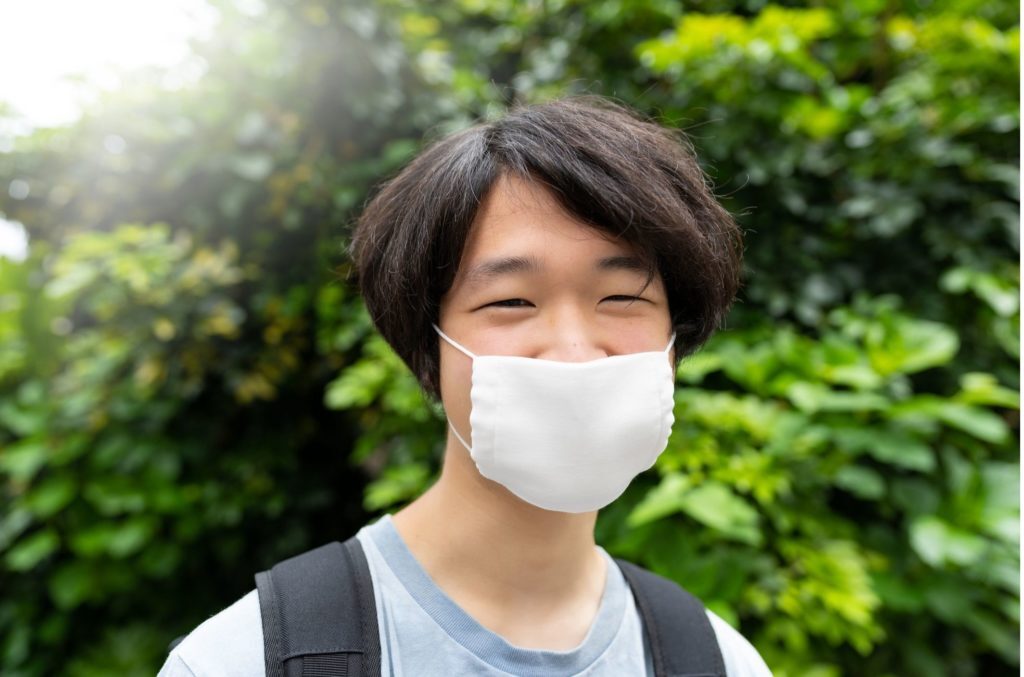For many who experienced anxiety and depression before the pandemic began, mental health issues have only become more challenging to manage. With the spread and duration of the COVID-19 pandemic, many who had never experienced clinical anxiety or depression also need help to care for their mental health.
Since mental health is now everyone’s business, we want to share 9 tips to help you protect and improve your mental health during the pandemic.
For many who experienced anxiety and depression before the pandemic began, mental health issues have only become more challenging to manage. With the spread and duration of the COVID-19 pandemic, many who had never experienced clinical anxiety or depression also need help to care for their mental health.
Since mental health is now everyone’s business, we want to share 9 tips to help you protect and improve your mental health during the pandemic.
COVID-19 depression and mental health
Social isolation and loneliness have the same negative long-term impact on your longevity as excessive alcohol use, tobacco use, or lack of exercise and obesity.
Former United States Surgeon General Dr. Vivek Murthy wrote about it in his book, Together: The Healing Power of Human Connection in a Sometimes Lonely World.
His book’s publication coincided with one of the loneliest and most isolating periods most Americans would experience—the quarantines and lockdowns to reduce infections have given way to a new issue: COVID-19 and depression.
In the past year, social isolation has been paired with grief, uncertainty, economic strain, health worries, childcare, and academic challenges. All of this makes the phrase “coronavirus depression” something most of us can understand on an intuitive level.
The added stressors happening as a result of the pandemic are having a significant impact.
In the latest Stress in America survey conducted by the American Psychological Association (APA), nearly 8 in 10 adults named the coronavirus pandemic as a significant source of stress in their life.
In addition, 67% of adult respondents say they have experienced increased stress over the course of the pandemic. That means that if you’re experiencing anxiety or depression during COVID, you’re not alone.
The harmful mental and physical health impact of COVID-19 is even more severe for those simultaneously experiencing multiplicative stressors such as racial trauma, job loss, domestic violence, or grief.
Here are 9 things you can do to protect and improve your mental health during the pandemic.
1. Talk about feelings.
Articulating and expressing ourselves helps make sense of what we experience. Studies have even linked the expression of emotions to better longevity and health outcomes. This can be especially important for feelings like anger and rage.
2. Write about them, too.
Journaling is a healthy emotional outlet for thoughts and feelings and has been correlated with the relief of anxiety and depression. The process of slowing your thoughts as you write may help you better make sense of complicated events and experiences.
3. Maintain connections.
Whether it’s a text, e-mail, phone call, Zoom meeting, socially-distanced outdoor meetup, or social media hello, take a little time to check in with others. The mental health benefits of social connection are significant. Taking the time to commiserate, laugh, and share with another person can improve your whole day.
4. Get moving.
Many studies have shown that moving your body improves health and mood. Even if you can’t fit in the recommended 30 minutes 3 to 5 times a week, smaller 10-minute increments can add up.
These shorter sessions can help release endorphins, distract from negative thoughts, and improve feelings of well-being. It can be as simple as walking or as intense as lifting weights, dancing, cycling, or whatever movement you enjoy is helpful!
5. Shift your perspective.
Set aside all the ideas you have about what you think you should be able to do right now and give yourself a break. Certain expectations you have of yourself may not be attainable in the midst of a global pandemic.
Celebrate and encourage yourself as much as possible. Try to frame any success, however small or seemingly imperfect, as a win. Even if you don’t feel hopeful, this shift in perspective can help you feel more optimistic.
6. Learn about grief and trauma.
Educate yourself about signs of trauma and normal grieving. Consider connecting with support groups of people who share and understand your experience.
Here are some resources worth checking out:
Navigating Grief: A Guidebook for Grief Awareness & Understanding
7. Maintain a schedule.
Most of us don’t fare well with a total lack of structure. That’s why this is an ideal time to update your goals. Be realistic about what you want to do in these trying times. Healthy or productive habits are far more likely to stick when there are calendar reminders and regular routines.
8. Try something new.
New situations call for new coping strategies. This is an ideal time to be curious and experiment with something you’ve never done before. This could be a musical instrument, hobby, exercise routine, game, app, recipe, anything goes.
What have you wanted to learn how to do? Maybe it’s a new language, a skill like sewing, or a new kind of workout. Since you can now discover how to do all of those things online, find a class or video and make it happen.
9. Do what helped pre-covid.
The past times and self-care you enjoyed pre-COVID may provide clues to what will help you feel better now. What brought you joy and helped you feel connected before the pandemic? You may have to get a little creative to find ways to do some of those things, but there’s plenty of room to experiment.
If your favorite restaurant has been closed, you can get ingredients and try your hand at making a favorite dish. If it’s the great outdoors you’re missing, plan a weekend road trip. No, it won’t be quite like it was. Sometimes, even taking action to do something good for yourself can have a positive emotional impact.
If you practiced mindfulness, calming skills, or techniques for physical relaxation, those activities can support you now more than ever. And if you’re new to those practices or if past attempts haven’t felt helpful, this is a great time to explore your options. There is no best way to meditate or practice mindfulness—there’s just what works best for you.
Covid depression vs. quarantine fatigue
Quarantine fatigue refers to the feelings of mind-body exhaustion from trying to carry on with routine activities within the restrictive, socially isolated, and stressful international crisis of COVID-19.
Quarantine fatigue is not a formal diagnosis, but it’s become a widely cited and experienced phenomenon in the past year.
Typical signs of quarantine fatigue may include:
- Physical fatigue
- Sleep disturbances like insomnia
- Decrease in or lack of motivation
- Irritability
- Interpersonal conflicts
- Social withdrawal
- Feelings of pessimism
- Appetite disturbances
When to seek help for COVID depression
Having an adverse reaction to new stressors is entirely normal, as is feeling quarantine fatigue or related exhaustion (Zoom fatigue, homeschool fatigue).
Having an adverse reaction to new stressors is entirely normal, as is feeling quarantine fatigue or related exhaustion (Zoom fatigue, homeschool fatigue). In fact, there’s even a name for this experience when it lasts fewer than 6 months: situational depression.
But for many, the adjustment difficulties that came with 2020 have persisted. And they can wear you down over time. The following are some clear signs that it’s time to reach out for professional consultation and support around quarantine depression.
Please seek help if you have:
- Physical symptoms, mental health symptoms, or both lasting over 2 weeks
- Sleep disturbances that negatively impact your ability to function
- Eating disturbances that negatively impact daily functioning
- Maladaptive behaviors, such as substance use that are escalating
- Symptoms that impact interpersonal relationships in a negative way
- Symptoms that affect your ability to do your job
- Lost hope or optimism
- Not being able to feel excitement or pleasure, a symptom called anhedonia
- Suicidal thoughts or impulses
- Homicidal thoughts or impulses
Resources
For people who need help and resources right now, we’ve compiled a list of our favorite COVID-19 guides, resources, and toolkits.
General
Coping with Stress – the Centers for Disease Control
COVID-19 Resource and Information Guide – NAMI
BIPOC
Mental Health Resources for Black, Indigenous and People of Color (BIPOC)
Asian & Pacific Islander
Asian Mental Health Collective Resources
Black
The Black Emotional and Mental Health Collective (BEAM) resources
The Black Mental Health Alliance resources
Indigenous
Indigenous Identity and Mental Health
Latinx
Latino Behavioral Health Services
LGBTIQ+
Trans-specific
National Center for Transgender Equality
People experiencing abuse
Resources and Support for Those Coping with Abuse During COVID-19
Support for People Experiencing Abuse
People experiencing homelessness
People Experiencing Homelessness
Toolkit for People Experiencing Homelessness
Veterans
How To Manage Stress and Anxiety During the COVID-19 Outbreak
Older adults
Key COVID-19 Resources for Older Adults
Maintaining Wellness for Older Adults and Caregivers
Parents
COVID-19 Parental Resources Kit
Supporting Families During COVID-19
Resources for Helping Kids and Parents Cope Amidst COVID-19
If you’re experiencing anxiety, depression, or insomnia due to the pandemic, there are tools and resources available to you. Try the resources above or visit Lemonaid to talk with a medical team member about mental health treatment.
Takeaway
- The COVID-19 pandemic is taking a significant toll on mental health.
- This is due to prolonged uncertainty, isolation, stressors, and negative health impact.
- Taking small actions in your daily life can improve your sense of well-being.
- Unprecedented stressors require new coping skills and community resources.
- This is the ideal time to find out how to best support yourself and others by learning new skills and building resilience.












